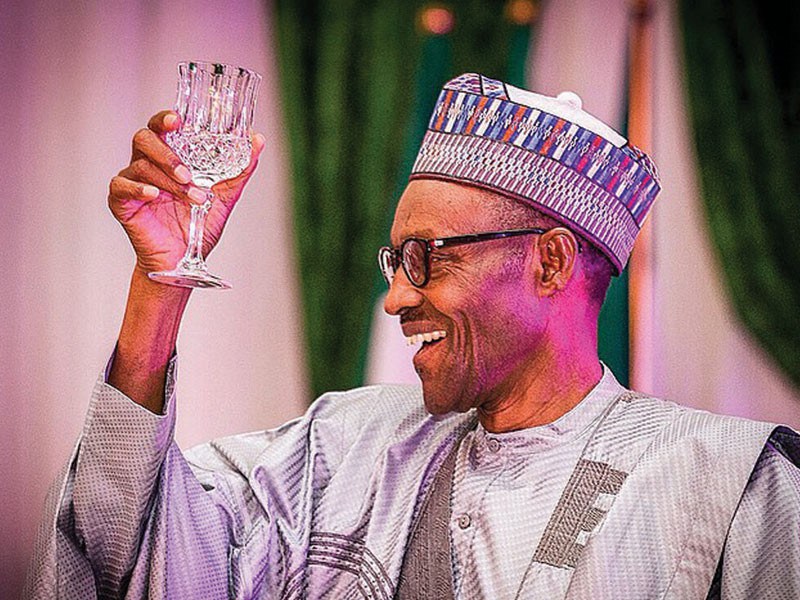By Reuben Rine
In June 2018, Nigeria was reportedly declared to have overtaken India as the world’s headquarters for extreme poverty by the Brookings Institution, a nonprofit public policy organization in the USA.
Prior to this declaration, the International Monetary Fund had said Nigerians are getting
poorer, and they emphasized the need for coherent and comprehensive
economic reforms.
Despite the above mention reports arising from global surveys, little or nothing was done. It became business as usual.
The opposition political parties threw them hard on the ruling party and the present government
while the later, in turn, reeled out unfound figures to rubbish the former’s claims as Nigerians abysmally watched and listened.
These are very strong national issues that needed not to be trivialized.
Unfortunately, these were all thrown to the gallery, and life continues asthough all is well with the nation. Little or no efforts were made to elucidate the root cause of the problems bordering those two reports with ways to curtail them.
The recently published global survey by Dr. Steve Hanke, a professor of applied economics at the Johns Hopkins University in Baltimore, USA, listing Nigeria as the 6th most miserable country in the world got me thinking.
The Misery Index was calculated using different economic indices including unemployment, inflation and bank lending rates. The unemployment rate was the major contributing factor to the miserable state of Nigeria.
Nigeria’s miserableness means that Nigerians are in a pitiable state of distress or unhappiness (as from want or shame) or being habitually morose.
If this index has anything to go by, it means we’re unhappy, sad, sorrowful, dejected, depressed, downhearted, despondent, despairing, hopeless, desolate, wretched, gloomy, dismal, low-spirited, mournful, woeful, doleful, heartbroken, inconsolable, luckless and grief-stricken.
How did we get this low as a once prosperous nation? At what point did Nigeria missed the mark? How can we lack and be in want in the midst of abundance? Wealthiest countries of the world don’t have as many resources as we do. Nigeria has undoubtedly unmatched economic potentials globally.
Last year, at the national economic council, Bill Gates delivered some harsh truths, pointing out the government’s failures. He was broadly critical of Nigeria’s health system (which he called “broken” and “not adequately funded”), and the struggling education sector and chronic malnutrition among children.
Gates would go further to say that the government’s priorities, “don’t fully reflect people’s needs.” Of a truth, once government’s priorities do not conform with the subsisting realities at the grass root, the impact of her spending and budgetary allocations will be very minimal no matter how huge the budget seems to be.
Huge budgets that do not transform into the betterment of the citizenry amounts to wastage. Once resources are appropriated and spent on projects and programmes that do not have direct impart to economic indices, our progress will be very minimal or none.
The 2018 World Happiness Report, an annual publication of the United Nations Sustainable Development Solutions Network also ranked Nigeria as the 91 most happy country. This shows that Nigerians are not really a happy people.
This aligns with the Harke’s report. A miserable country cannot be a happy country. A miserable country cannot be prosperous. A miserable country cannot be productive.
The increasing suicide and murder reports all round Nigeria justifies the current miserable statement about our state. Of late, we saw countless people jumping into the lagoon, falling from telecom masks, hanging themselves, using lethal substances among others to end their lives.
The rate of murder has been also alarming. A miserable man is undoubtedly an angry man. The result of anger can be so very devastating. We often read of spouses killing each other, and how friends, relatives, business partners, students, colleagues, neighbors, etc ends each other’s lives at the slightest provocation.
Furthermore, this level of misery leads our young and idle men into all sorts of vices. A miserable energetic man will do anything to survive. No wonder, they become willing tools in the hands of the politicians.
These suicide and murder cases have no social, tribal, religious, political or regional boundaries. Both the peasants and elites alike, poor and rich, young and old, males and females are all affected. Also, the dead end of the atrocities committed as a result of our kind of misery has led many into becoming compulsory widows, widowers, orphans, fatherless and motherless.
Apart from our religiosity as a nation, one rarely hears much good been reported about Nigeria, once we’re presented on a global scale. I’m yet to fully decipher the mystery behind our miserableness amid our rebound and acclaimed religiosity. This whole episode is another piece for a sooner time.
Hanke’s report is a wake-up call not for political jamborees or debates to score cheap political gains but for a national renaissance, for a rebirth in all aspects of our society especially our economy, education, health, and value system.
I can see Nigeria sitting on a keg of gun powder. Nigeria’s miserable state can sooner than ever expected become very volatile and dangerous. But the earlier we take a major decision to correct this anomaly the better it becomes for us as a nation. All hope is not dashed.


